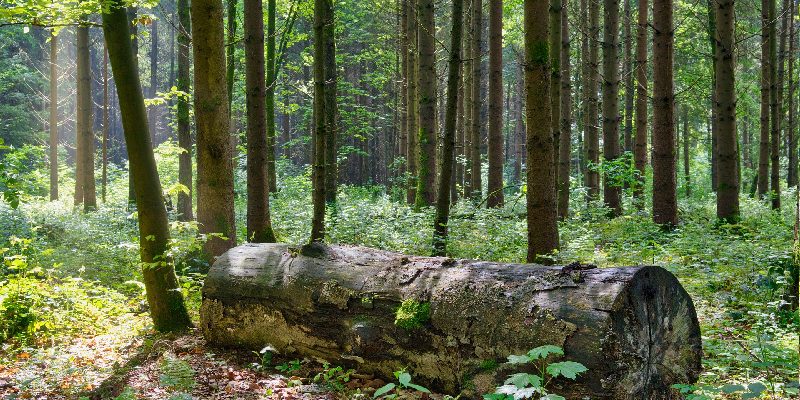Ground-breaking international research determines role insects and deadwood play in carbon cycle 01 Sep 2021

While living trees absorb a considerable amount of carbon dioxide from the atmosphere and therefore play an important role in the protection of our climate, little is known about the role of dead and rotting trees in the global carbon cycle.
The decomposition of wood and the associated recycling of the nutrients are among the most important processes to take place in forests.
Just how much carbon is released from rotting wood worldwide? What role do insects play in this process? These questions were the focus of a global research project led by the Bavarian Forest National Park and coordinated by the Julius Maximilian University of Würzburg and the Technical University of Munich.
This study, ‘The contribution of insects to global forest deadwood decomposition’ has now been published by the prestigious academic journal Nature.
An experiment at 55 different locations around the world
At 55 forest locations on six continents, researchers laid out wood from more than 140 tree species to assess the influence of climate on the rate of decomposition. Half of the wood was placed in mesh cages to preclude insect involvement in decomposition.
The final data demonstrate that the rate of decomposition and the contribution of insects are highly dependent on the local climate, and increase as the temperature rises. Higher levels of precipitation accelerate the decomposition in warmer regions, and slow it down in regions where the temperatures are lower.
Fifty research groups worldwide collaborated on the three-year experiment, sometimes under exceptionally difficult conditions. It was necessary to use elaborate measures to protect some areas from elephants. One area was lost to a forest fire and reconstructed, while another area was flooded. The Irish study site was located in the beautiful Glengarriff Nature Reserve in County Cork where the field research was undertaken by Allen Whittaker, Ilse Corkery, and Anthony Caravaggi of UCC’s School of Biological, Earth & Environmental Sciences.
Global carbon cycling
The study found that some 10.9 giga-tons of carbon are released from deadwood worldwide every year - equivalent to roughly 115 percent of the emissions from fossil fuels.
Prof O’Halloran, a zoologist, said the research findings are exciting, and important for addressing future climate change challenges and meeting targets. He said:
“We know that temperature, moisture, and indeed insect composition bacteria and fungi are critical for decomposition. What we didn’t know up to now was the extent of the role played by insects in that process. This is really important because it is only with a detailed understanding of the processes by which carbon is released that we can model the future challenges in relation to carbon budgeting.
“So the role that insects play, which was hitherto unknown, is amazing. We found that 29% of the carbon that's released from forests is actually released through insect decomposition. What does that mean? It means if we lose those insects, we reduce the capacity for decomposition and therefore, the release of carbon back out.
“We also found that each of those individual systems, whether it's in the tropical area, the boreal area, the temperate area, behave differently. We found that in the tropical areas 93% of the carbon was being released through the decomposition of insects, and then as you moved up into the temperate and boreal areas the observed contribution of insects reduces.
“The significance of this is that our study marks the first time the role that insects play in releasing carbon from deadwood in forests has been quantified, and it is really exciting,” Prof O’Halloran said.